
Women face widespread discrimination within Bahraini society and the country's political institutions. Women's rights have been a cornerstone of the political reforms initiated by King Hamad, with women Do not have the right to vote. The extension of equal political rights has been accompanied by a conscious drive to promote women to positions of authority within government. However, women in Bahrain continue to face gender inequality in many areas of life.
According to human rights organisations, the government of the UAE violates a number of fundamental human rights. The UAE does not have democratically elected institutions and citizens do not have the right to change their government or to form political parties. Activists and academics who criticize the regime are detained and imprisoned, and their families are often harassed by the state security apparatus. There are reports of forced disappearances in the UAE; many foreign nationals and Emirati citizens have been abducted by the UAE government and illegally detained and tortured in undisclosed locations. In numerous instances, the UAE government has tortured people in custody , and has denied their citizens the right to a speedy trial and access to counsel during official investigations.

The roles of women in the Arab world have changed throughout history, as the culture and society in which they live has undergone significant transformations. Historically, as well as presently, the situation of women differs greatly between Arabic speaking regions, their urban or rural population and age groups. Among other factors, these differences can be attributed to local traditions, culture and religion, women's social or legal status, their level of education, health or self-awareness. Since the 19th century, and notably through the influence of the colonization in North Africa, the Arab Renaissance in Egypt, Lebanon, and Syria, and the end of the Ottoman Empire, the social and economic changes in the Arab world have become greatly accelerated and diversified.

Abdallah El-Yafi was the Prime Minister of Lebanon serving twelve times between 1938 and 1969.
Movements for Muslim women to seek roles in national leadership have increased rapidly. Greater opportunities for women in education have further encouraged their involvement in politics. The most prominent Muslim female leaders are former prime minister of Pakistan Benazir Bhutto, Indonesian President Megawati Sukarnoputri (2001–2004), former Turkish Prime Minister Tansu Çiller (1993–1996), former Senegalese Prime Minister Mame Madior Boye (2001–2002), Bangladeshi Prime Ministers Khaleda Zia and Sheikh Hasina Wajed, former Iranian Vice President Masoumeh Ebtekar (1997–2005), former Malian Prime Minister Cissé Mariam Kaïdama Sidibé (2011–2012), Kosovan President Atifete Jahjaga (2011–2016), former President of Mauritius Ameenah Gurib (2015–2018), former President of Singapore Halimah Yacob (2017–2023) and current President of Tanzania Samia Suluhu Hassan

The roles of women in Lebanon have evolved throughout history. The legal status of women improved over the 20th century, but patriarchal norms and conservative versions of Islamic law still limit women's rights in Lebanon.
According to Human Rights Watch, there is substantial discrimination against women in the United Arab Emirates. The status of women has improved over the years. UAE performs better on metrics of gender equality than many other states in the Gulf region, and it has been making reforms to protect women's rights and empower women in different sectors. Critics describe some of these reforms as window dressing.

Sarah Leah Whitson is an American lawyer and the executive director of Democracy for the Arab World Now (DAWN). She previously served as director of the Middle East and North Africa division of Human Rights Watch.
Sheikha Fatima bint Mubarak Al Ketbi is the third wife of Sheikh Zayed bin Sultan Al Nahyan, the founder and inaugural president of United Arab Emirates. She is referred to as the mother the UAE and as The mother of Nation.
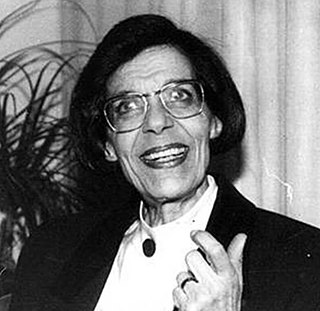
Laure Moghaizel (1929–1997) was a Lebanese attorney and prominent women's rights advocate. who was awarded the National Order of the Cedar (commander) in recognition of many years of social and public service.

Tawakkol Abdel-Salam Khalid Karman is a Yemeni Nobel Laureate, journalist, politician, and human rights activist. She leads the group "Women Journalists Without Chains," which she co-founded in 2005. She became the international public face of the 2011 Yemeni uprising that was part of the Arab Spring uprisings. In 2011, she was reportedly called the "Iron Woman" and "Mother of the Revolution" by some Yemenis. She is a co-recipient of the 2011 Nobel Peace Prize, becoming the first Yemeni, the first Arab woman, and the second Muslim woman to win a Nobel Prize.

Mounira Solh was a pioneer advocate for the rights of women and people with disabilities in Lebanon. She was one of the first women in Lebanon and the Middle East to run for parliament. She ran for a seat in the Parliament of Lebanon in 1960, 1964 and 1968. She was also a humanitarian with decades of volunteer and charity work.
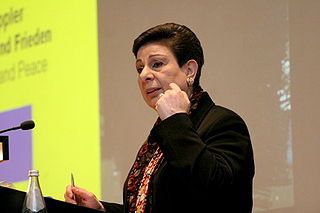
Hanan Daoud Mikhael Ashrawi is a Palestinian politician, activist, and scholar.
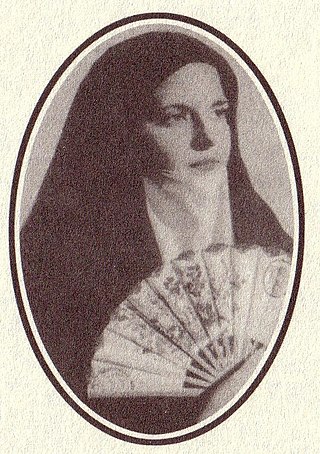
Zaynab Fawwaz (1860–1914) was a Lebanese women's rights activist, novelist, playwright, poet and historian of famous women. Her novel "حسن العواقب/Ḥusn al-Awaqib", is considered the first novel in Arabic written by a woman. Her play, "الهوى والوفاء/Al-Haawa wa al-Wafa", is the first play written in Arabic by a woman.
Emily Bisharat was a Jordanian lawyer, political activist and philanthropist, known for being the first female lawyer in the Kingdom of Jordan. She established the Arab Women's Union in the 1950s, fought for women's suffrage in Jordan, and was active in international discussions of Palestinian rights. She founded the Arab Women's Federation.
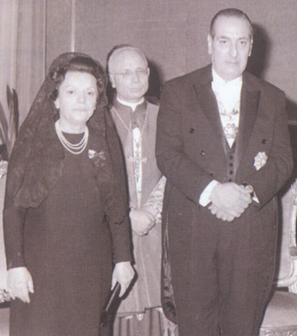
Nina Michel Helou was a Lebanese lawyer and former First Lady of Lebanon from 1964 to 1970. She was the second woman lawyer to be registered with the bar association of the Mandate for Syria and Lebanon, during French administration. Her practice was mainly focused on women and women's issues. Marrying a fellow lawyer, she was the first woman to serve on the Beirut City Council. In 1964, Helou became the First Lady of Lebanon and during her tenure, she oversaw the completion of the Baabda Palace and the renovation of the Beiteddine Palace, as well as a city-wide beautification project. She was also devoted to social welfare programs and charitable organizations, particularly the Lebanese Red Cross.
Linda Matar was a Lebanese women's rights activist, who joined the League of Lebanese Women's Rights in 1953. She became president of the league in 1978, presiding for 30 years. She was also president of the Lebanese Council of Women from 1996 to 2000. She was a part of more than 50 conferences world-wide. Matar first starting fighting towards Lebanese gender equality, when she began working in a silk factory at 12 years old.

Sana Solh was a Lebanese human rights activist who advocated for the respect and equal rights of women, children and persons with disabilities through social and political change. She was one of the main female leaders of the civil rights movements in Lebanon, actively working, lobbying and leading demonstrations to fight for the right of women to grant their nationality to their children, ask for laws to guarantee quotas for women's participation in politics, or raise funds for the many institutions and associations where she was an active member.
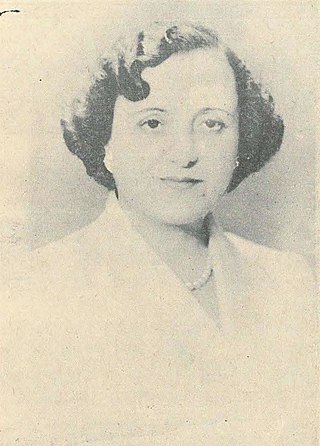
Salwa Mahmasani Moumina (1908-1957) was a Lebanese women's rights activist, university vice president and professor, and writer of short stories. She was born and raised in Beirut. She studied in Al-Makassed Philanthropic Islamic Association, a primary school for girls. She studied Arabic literature under Julia Ta’ma and Salma Sayegh, and she studied the Arabic Language under Mostafa Al-Ghailani. She then studied French at St. Joseph School. Later, she taught Arabic for 13 years. She published her literary articles in Arabic newspapers such as the Egyptian Almar’ah Aljadeedah “The New Woman”. She was the vice president of “Lebanese Women Association”. She was a pioneer in the Lebanese women's movement. She wrote Ma’ Alhayah “With Life”; a collection that includes 15 short stories that discuss social and family issues.
The Syrian-Lebanese Women's Union was a women's organization in Lebanon and Syria, founded in the 1920s and active until 1946. It has also been called Lebanese Women’s Union, Syrian Arab Women's Union and Arab Women’s Union. It has been referred to as the starting point of the active women's movement in Lebanon and Syria.












